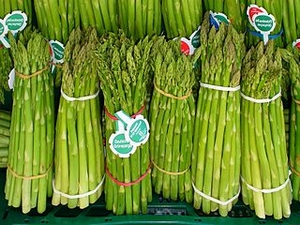
S. K. Mitra from Rajiv Gandhi University of Health Sciences in Bangalore, Karnataka, India and colleagues conducted the research and found compounds known as shatavarins isolated from the roots of Asparagus racemosus possess anticancer activity in vivo and in vitro against human breast cancer cells.
For the study, researchers first made preparations of shatavrin IV, the active ingredient found in asparagus isolated from ethyl acetate insoluble fraction of chloroform/methanol extract of asparagus racemosus roots.
The preparations were tested in human breast cancer cell lines, human colon adenocarcinoma cell lines and human kidney carcinoma cell lines to determine their cytotoxicity (in vitro). Researchers also tested the preparations in mice for its anticancer activity against Ehrlich ascites carcinoma.
The shatavarin IV fraction and shatavarins rich fraction containing 5.05% shatavarin IV showed potent cytotoxicity against cancer cells.
Oral administration of an extract of asparagus in doses of 250 and 500 mg/kg body weight for 10 days led to "a significant reduction in body weight, tumor volume, packed cell volume, viable tumor cell count, and increase non-viable cell count", compared to controls.
It was also found that treatment of asparagus extracts tended to restore hematological parameters to normal levels.
The researchers concluded that the asparagus preparation exhibits significant anticancer activity against cancer cells including breast cancer cells.
Breast cancer is expected to be diagnosed in more than 230,000 women in 2012 in the United States and the disease and complications are expected to kill 37,000 in the country every year, according to the National Cancer Institute.





